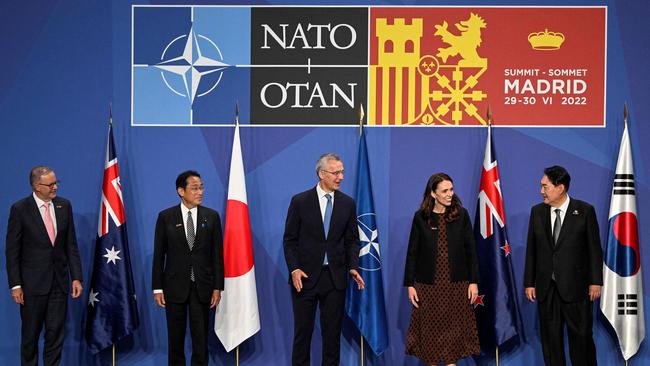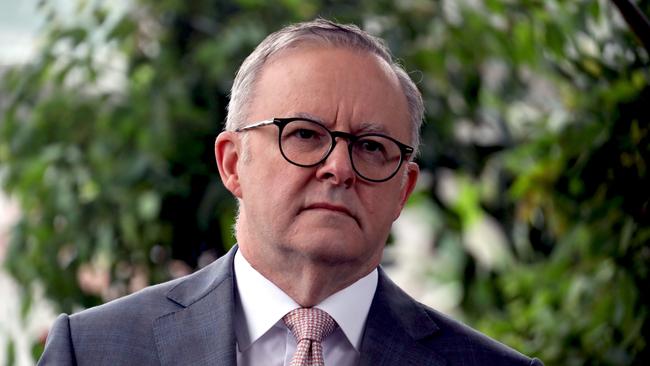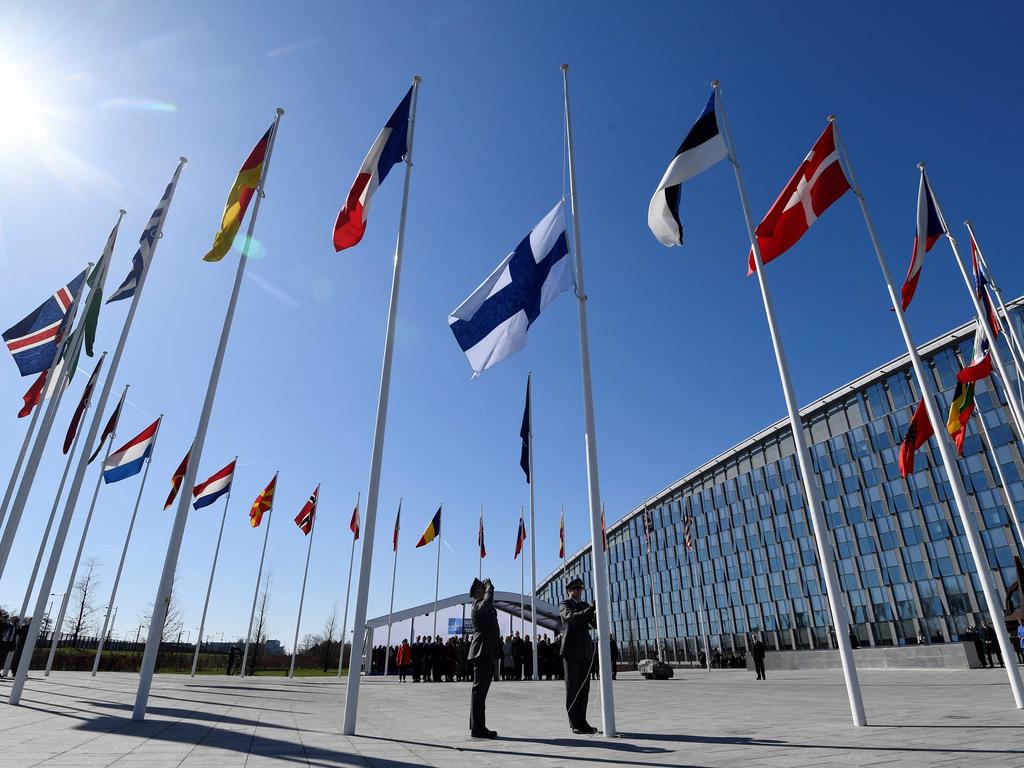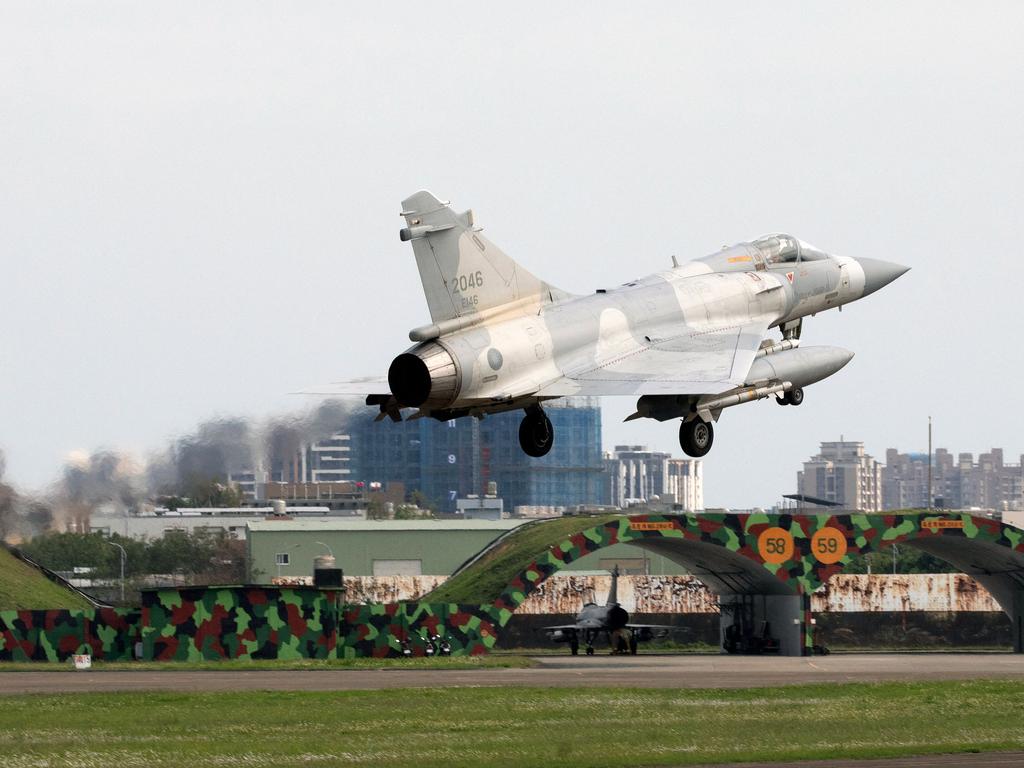NATO calls PM to summit
Lithuania’s top national security adviser, Kestutis Budrys, revealed the Australian Prime Minister has been invited to attend as the China-Russia relationship threatens the Pacific.

Anthony Albanese has been invited to attend NATO’s upcoming summit in Lithuania amid fears over China’s growing alignment with Russia and the authoritarian powers’ systemic threat to the international order.
The invitation to the Prime Minister and his Japanese, South Korean and New Zealand counterparts comes as the world’s most powerful military alliance – bolstered by the admission of Finland – works to strengthen ties with its Asia-Pacific partners.
Lithuania’s top national security adviser, Kestutis Budrys, revealed the invitation to The Australian just days after talks in Brussels between NATO officials and representatives of the four Asia-Pacific countries, dubbed by the alliance as the AP4.
It’s unclear whether Mr Albanese will attend the July 11-12 summit but Australia’s status as a major donor to Ukraine’s war effort and a staunch defender of global rules suggest he is likely to make the trip. “We still don’t have the answer yet but yes, that's what we expect,” Mr Budrys said.
The senior adviser to Lithuanian President Gitanas Nauseda met officials from the Prime Minister’s office and the Departments of Foreign Affairs and Defence during a visit to Australia last week.
The invitation, which is informal until the AP4 leaders confirm their attendance, comes as the US scrambles to investigate a devastating intelligence leak detailing Russian and Ukrainian war plans, and sensitive assessments of Chinese threats in the Indo-Pacific.
A senior US national security official told The New York Times the leak was “a nightmare for the Five Eyes” – the Anglophone intelligence-sharing network that includes Australia.
Tensions were also high in the Pacific at the weekend as China deployed dozens of fighter jets and warships around Taiwan following a meeting between the island’s president and US house Speaker Kevin McCarthy in California.
Mr Albanese and other AP4 leaders attended last year’s NATO summit in Madrid, where the alliance declared for the first time that China’s “ambitions and coercive policies challenge our interests, security and values”.
NATO secretary-general Jens Stoltenberg said after meeting AP4 officials last week that any decision by China to provide lethal aid for Russia in its war against Ukraine would be “a historic mistake with profound implications”.
Mr Stoltenberg said as Beijing and Moscow pushed back against the rules-based international order, it was vital for NATO allies and its like-minded partners to stand together.
Like Australia, Lithuania has been subjected by Beijing to a campaign of economic coercion that saw its exports blocked and pressure piled on countries to strip Lithuanian inputs from their supply chains. The Baltic state of just 2.7 million people sparked Chinese fury in 2021 when it allowed Taiwan to open a de facto embassy in Vilnius named the “Taiwanese Representative Office”.
Lithuania is also leading a push to admit Ukraine to NATO, with its parliament unanimously passing a resolution last week to officially invite Kyiv to join the alliance at the upcoming summit in Vilnius.
The proposal is considered a radical one by many NATO allies, which fear the move would dangerously escalate the conflict.
Mr Budrys said Europe had learned its lesson after becoming overly reliant on Russian energy, and it was important for like-minded nations to avoid a similar dependence on China.
He said the “possible harmful consequences” of dependency on China and Russia required new levels of solidarity between nations that respected global rules. “In relation to China, economic dependency can be turned into a tool of coercion, but also a political tool if there is a crisis or military conflict,” Mr Budrys said.
“For that reason, we have to think about risk mitigation measures and be very realistic about what level of interdependence can be harmful.”

He called for “economic war-gaming” by like-minded nations to assess the risks of coercion and supply chain interruptions, “and to see what would limit that”.
The director of foreign policy and defence at the United States Studies Centre, Peter Dean, said the NATO invitation was an important one, reflecting the interconnectedness of Europe and the Indo-Pacific in an era of intense strategic competition.
“It’s an acknowledgment of the need to stand together in the face of revisionist powers in both regions, and endeavours to strengthen the international order that favours rules and diplomacy over coercion and force,” he told The Australian. “We are seeing the need to engage not just on diplomacy and the international order but on defence industrial collaboration and broader economic engagement.”
Accepting the NATO invitation will add to Mr Albanese’s already hectic travel schedule amid a cost-of-living crisis at home and the government’s high-stakes advocacy for a Yes vote in the voice referendum.
He will attend King Charles’s coronation in London days before the May budget, and the G7-plus summit in Hiroshima that month as a guest of Japanese Prime Minister Fumio Kishida.
In another major commitment, Mr Albanese will host US President Joe Biden, Mr Kishida and Indian Prime Minister Narendra Modi in Sydney for the Quad Leaders’ summit, which is also likely to be held in May.
He is also set to address the Shangri-La Dialogue security conference in Singapore in early June, and attend the Pacific Island Forum in the Cook Islands in the middle of the year.
In a visit to Moscow in March, presidents Xi Jinping and Vladimir Putin called each other “dear friend” and revelled in their challenge to international norms. As he departed the Kremlin, Mr Xi told his counterpart: “Right now there are changes the likes of which we have not seen for 100 years. And we are the ones driving these changes together.”
French President Emmanuel Macron urged Mr Xi last week during a visit to Beijing to “bring Russia to its senses” over its war in Ukraine. Mr Macron was accompanied by a delegation of 50 business leaders, despite EU calls to “de-risk” Europe’s ties with China.








To join the conversation, please log in. Don't have an account? Register
Join the conversation, you are commenting as Logout